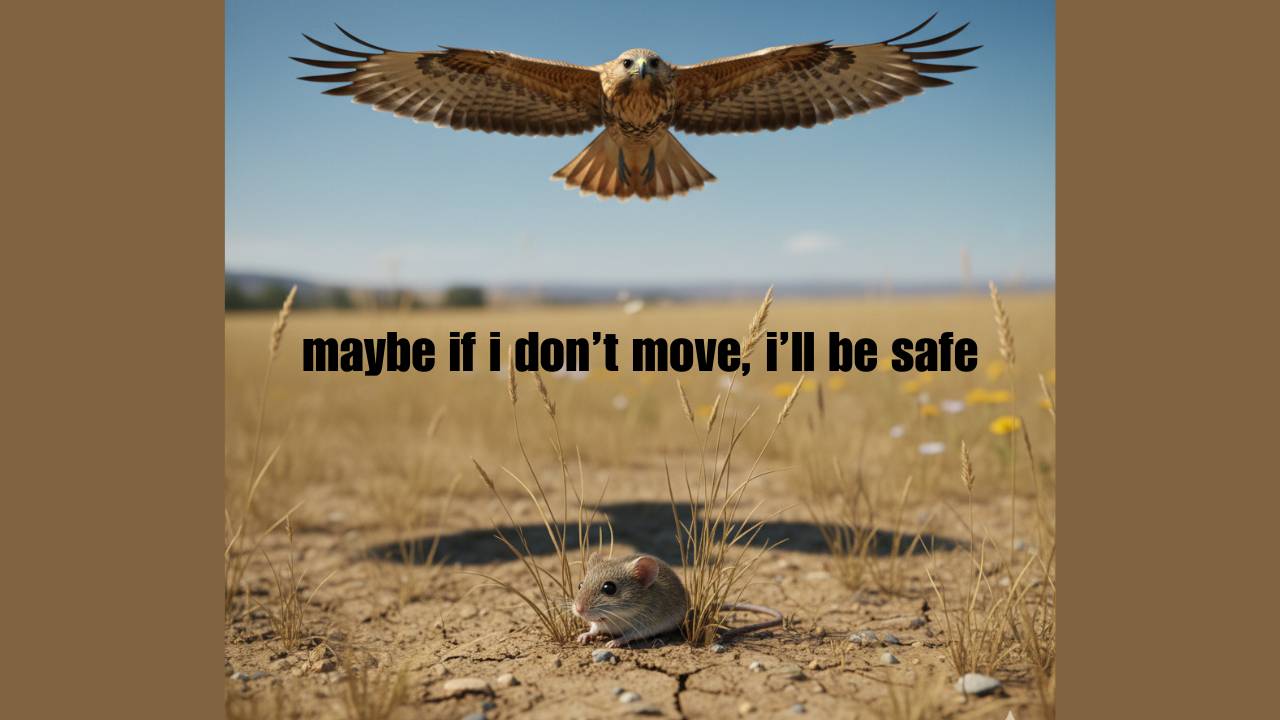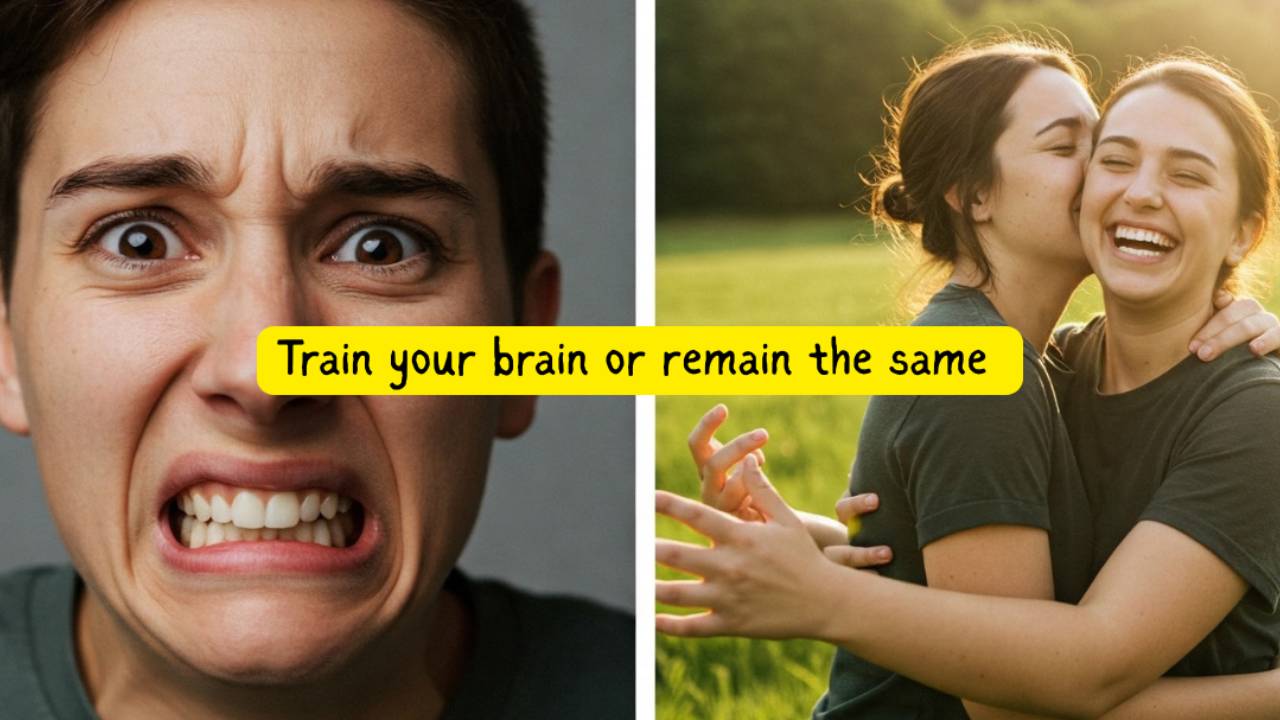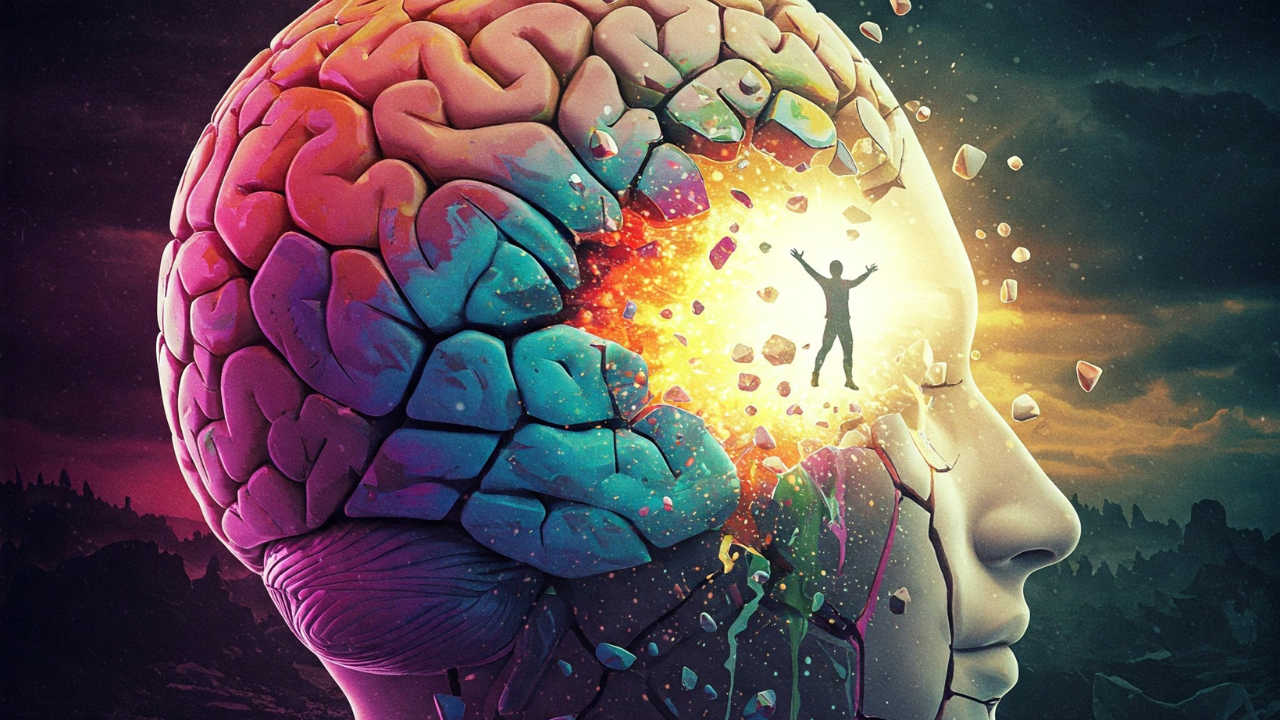
The Origin of ALL Disease and Suffering
Sep 10, 2024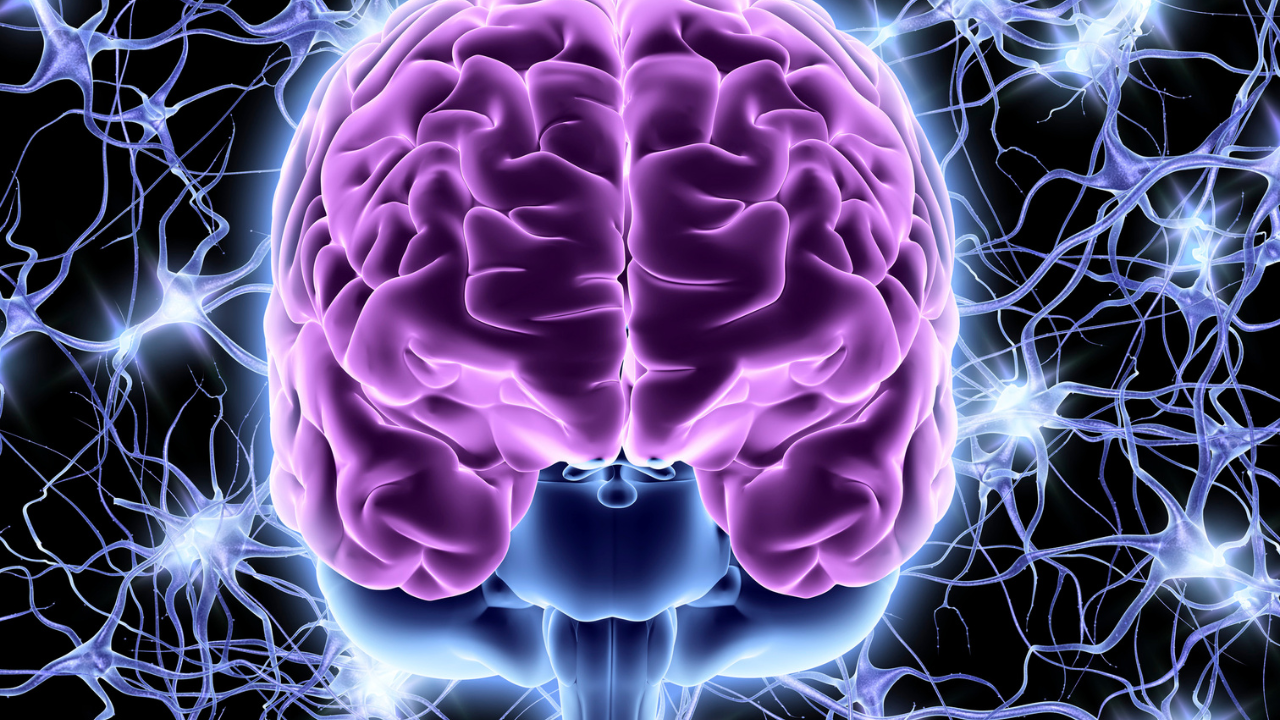
Most people spend the majority of their time in states of “survival” that, ironically, cost them their lives, or at least the quality of life that they want.
The nervous system has just 2 modes: surviving or thriving.
There is no neutral.
Our survival mode can be turned on for 2 different types of threats: actual or perceptual. Whenever our body perceives a threat, no matter if that threat is actual (a real snake) or perceptual (a branch that you misperceive as a snake), it turns on "survival mode."
In survival mode, we have three gears:
-
Fight - which includes the related emotions of anger, frustration, impatience, criticism, and control.
-
Flight - and the associated emotions of fear, anxiety, worry, doubt, insecurity, paranoia, etc.
-
Freeze - hiding, or ‘playing dead’, numbing, checking out (dissociation), and the related emotions of “depression”, hopelessness, helplessness, apathy, and fatigue.
Each of these gears activates a powerful neurobiol
...
Most people spend the majority of their time in states of “survival” that, ironically, cost them their lives, or at least the quality of life that they want.
The nervous system has just 2 modes: surviving or thriving.
There is no neutral.
Our survival mode can be turned on for 2 different types of threats: actual or perceptual. Whenever our body perceives a threat, no matter if that threat is actual (a real snake) or perceptual (a branch that you misperceive as a snake), it turns on "survival mode."
In survival mode, we have three gears:
-
Fight - which includes the related emotions of anger, frustration, impatience, criticism, and control.
-
Flight - and the associated emotions of fear, anxiety, worry, doubt, insecurity, paranoia, etc.
-
Freeze - hiding, or ‘playing dead’, numbing, checking out (dissociation), and the related emotions of “depression”, hopelessness, helplessness, apathy, and fatigue.
Each of these gears activates a powerful neurobiological symphony that humans have developed over millennia to ensure the priority of our survival. Survival mode evolved to happen prior to, and without our conscious awareness - in a split second. WE DON’T CHOOSE TO ACTIVATE THESE SURVIVAL MECHANISMS, which I am emphasizing as a point of compassion so that we understand "it's not our fault" but if we want a better quality of life, "it is our responsibility."
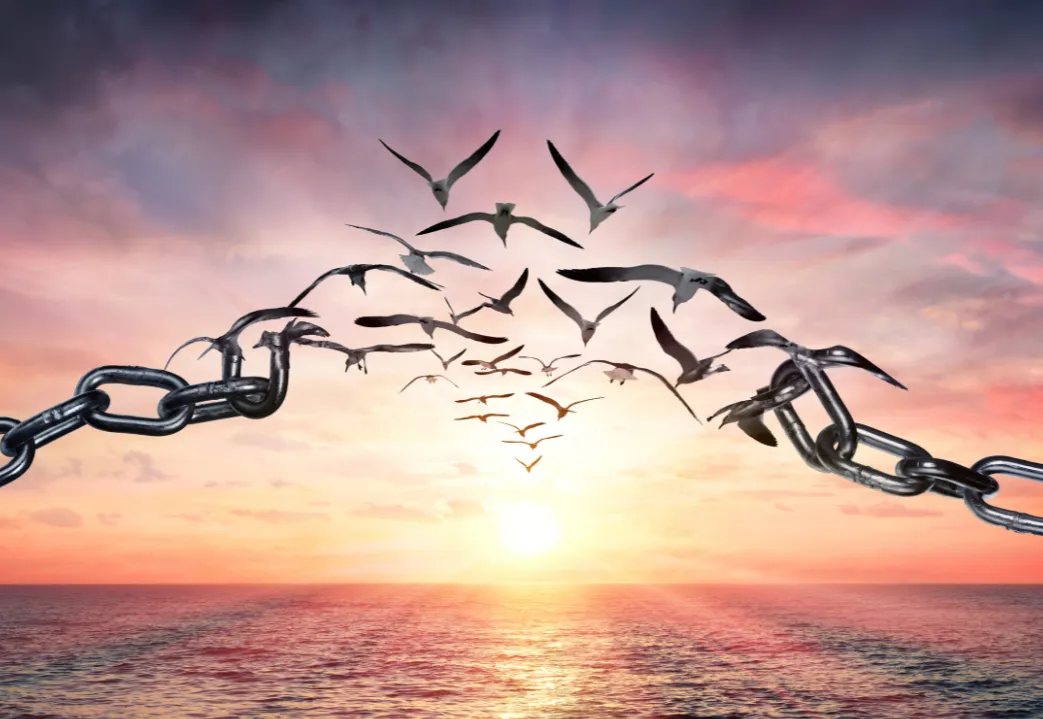
The Survival Mode being "on" too much, too often, for too long is the root of all suffering and disease.
Survival Mode is the "default" we are all born with, but we can upgrade to "Thriving Mode" if we know how.
Take the Surviving to Thriving Online CourseUnfortunately, because any effective alarm system must err to the side of false alarms, the survival mode is turned on for non-literal, non-immediate threats and can even stay “stuck" on. When survival mode is turned on too much, too often, the experiences we have of anger, frustration, criticism, resentment (fight); fear, anxiety, worry (flight); and hopelessness, helplessness, numbness, dissociation (freeze) are a natural byproduct and not issues of morality, ethics or will. Again, like Robin Williams told Will Hunting, it's not our fault.
But if we care to have a quality of life that is not dominated by the survival mode, it is our responsibility to do something about our tendency to default to this evolutionary priority. Thankfully, we have also developed a conscious, wisdom brain that can step back, assess our situation, and decide to do things to turn off this automatic surviving mode in situations where it causes more harm than good.
All dis-ease—physical, “mental,” emotional, spiritual—begins and thrives in a nervous system that is stuck in surviving mode.
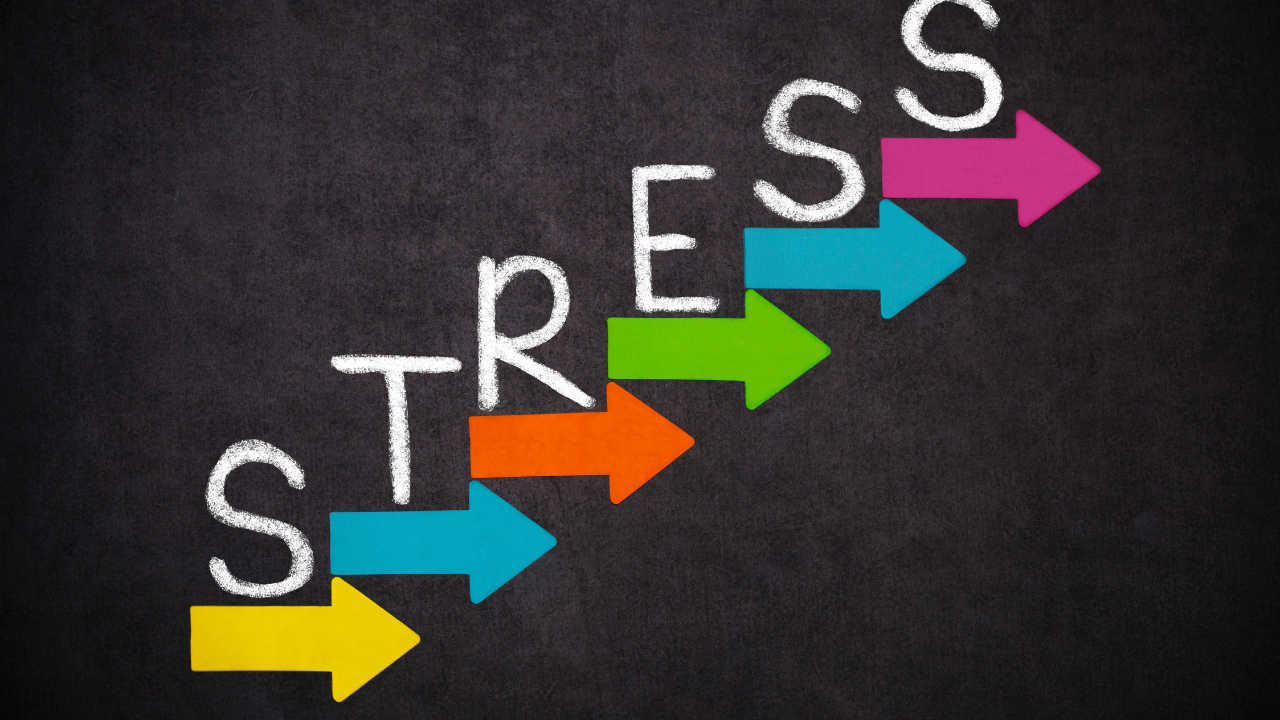
When our survival mode is turned on due to perceptual threats (say, perhaps, we get angry in traffic - reacting in a life-or-death way while in reality, we are safe in our air-conditioned cars, with water, snacks, and our favorite tunes on) we are not dealing with the present moment as it actually is, but we are reacting to present-moment stimuli filtered through perceptual lenses based on past conditioning, learning, preferences, and memory. That we react, often many times a day, in life-or-death ways to non-literal threats is an aspect of our reactive, mechanical evolution (juxtaposed to our creative, Conscious Evolution which we will get into below).
Regardless of the reason our survival mode is turned on, be it actual or perceptual, it is very “expensive fuel" - kind of like putting higher jet fuel in your Jetta. It's not only expensive but in the long run, it will ruin your engine.
In the case of actual threat, the cost of survival mode is worth it because these biological resources save our lives. But even if the cause is worthy, if survival mode is turned on too often it will eventually deplete us and cause wear and tear to our body, mind, and spirit. (The adverse health effects of “chronic stress” have been detailed elsewhere and are easy to research, but I find it striking that about 90% of all doctor's visits are attributed to illness that originate with "stress".)
Moreover, if the survival mode is turned on frequently for actual or perceptual reasons it can become “sensitized” and it can become a “habit". That means your nervous system begins to engage survival mode more easily for a wider range of reasons, even to the point where it can become “stuck on”, leading to anxiety, anger, and depression, not to mention all manner of medical illness and disease.
This is doubly unfortunate because the survival mode has a built-in negativity bias. It seeks to continually justify “the reasons” why we are suffering and filters all experiences through the “half empty” lens of “what can go wrong, will go wrong.” All too often "therapy" focuses on all these "reasons", which is entirely moot because the real cause for our distress is the survival mode being stuck on, not all the stories we try to understand about "why".
When the survival mode is on, our brain is designed to ASSUME the stick is a snake, when it is, in ACTUAL FACT, a stick.
With the physical survival of the species its only concern, the survival mode spares no energy for the quality of our life, or for our mental, emotional, spiritual, and relational well-being. Activating survival mode regularly is a direct assault on our conscious, wisdom-based desire to be healthy and happy long term. One theory is that this more primitive part of our brain evolved when threats to our safety may have been primarily physical, requiring immediate and conclusive reactions to secure our short-term survival, say when we needed to compete with other wild animals in our hunting for our family’s next meal. (continued below)

Michael Boyle LMFT, CDBT
Speaker, Author, Therapist, Coach
- Licensed Marriage and Family Therapist in New Mexico & Massachusetts
- Master's degrees in Clinical Counseling Psychology and Transpersonal Psychology
- Certified in Dialectical Behavioral Therapy
- HeartMath Clinical Certification for Stress, Anxiety, and Emotional Regulation
- Trauma specialist trained in ACT, EMDR, somatic therapy, EFT, CBT, NLP, and Clinical Hypnosis
- Advanced studies in yoga, Ayurveda, breathwork, meditation, optimal performance, biohacking, and just about everything you can imagine about healing and thriving.
- Authorized to share the relevant work of Dr. Joe Dispenza and Grace Essence Mandala.
- Founder of the ALL Together Academy, author of the Creative-IAM, Facilitator of "The Future Now" Mastermind, "The Relating Renaissance" and Energy of Mind: Secular Spiritual Work for Practical People.
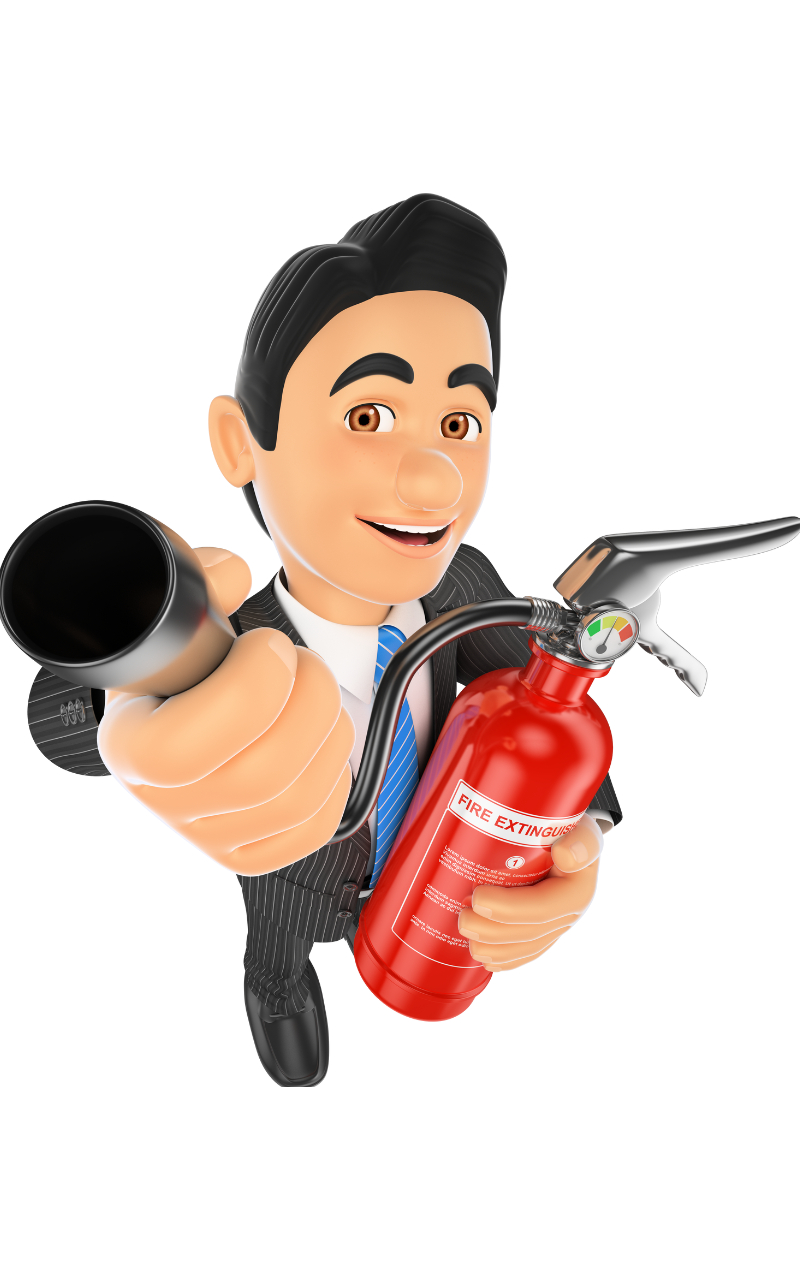
Nowadays, our primary “threats” are emotional, mental, social, and career/finance-related. Fighting, running away, and hiding usually make things worse and leave us with scant neurological architecture to experience the safety, connection, inspiration, joy, and love we all desire. Unless that saber-tooth tiger is breathing down our necks, survival mode is a biological overreaction and unnecessarily reeks all sorts of havoc with intertwining layers of complex justifications that we love to talk about and try to figure out.
For example:
Imagine you wake up to the smoke alarm in the middle of the night... The outer alarm activates the inner alarm, turning on survival mode, which shuts off your intelligent thinking capacities, allowing you to ACT FAST, without thinking, because that’s how this system works.
You wouldn’t want to pause and think, “Should I go left or right” if a tiger is coming at your throat. If you think, it is already too late! So, survival mode evolved to turn OFF your "thinking brain."
In your state of fear (FLIGHT) that there is a fire, you immediately grab the fire extinguisher and, not thinking, start spraying it everywhere.
After a minute of unconscious reactivity, you start to realize what's going on, there’s no smoke and nothing is charred, thankfully there was no fire after all.
But the relief of realizing there is no fire is shortlived, as you say to moan to yourself, “Oh my god, I’ve just ruined my couch and my TV."
Feeling embarrassed and wanting to deny (FREEZE) responsibility, it is common to revert to blaming someone else.
You are sure your partner was supposed to fix the fire alarm, so you wake them up in a state of anger (FIGHT) and disbelief that they slept through the alarm that they were supposed to fix, goddammit!
At first, they are in a state of shock (FREEZE), and they take your yelling with a blank stare. But it doesn't take long for their alarm system to get activated and their anger is aroused (FIGHT).
Your partner isn't the yelling type, though. Instead, they instinctively know how to say the exact thing that cripples you emotionally. They go for your psychological jugular and you feel it like a kick in the stomach.
This then triggers a trauma network in you that stems back to being shamed as a child. You go and isolate yourself in your bedroom in a state of emotional void and emptiness that feels numb and all too familiar (FREEZE).
Freeze happens to be the hardest surviving mode state to get out of because it’s the nervous system’s last resort, playing dead. With a history of depression (FREEZE) it is easy to get stuck here, lying helpless in your bed. (continued below)

Take the Surviving to Thriving Pathway
Thanks for being a premium blog member. If you want to go a bit further in this work, check out the Surviving to Thriving Pathway, for 10, 10-minute videos with written summaries delivered to your email that will give you the foundation you need to heal and thrive.
It turns out that the whole event re-activated your stomach ulcer and weakened your immune system, so the cold you were successfully fighting off with extra vitamin C, now gets the better of you in your compromised state.
You have to miss work, but you don’t have any sick days, so you start ruminating about financial worries (FLIGHT) and this raises your blood pressure and causes heart palpitations.
Because your brain is in a state where you assume the stick is a snake, you start getting scared (FLIGHT) about the sensations in your chest and you become convinced you are having a heart attack.
You call an ambulance, which terrifies your kids (FLIGHT). Your partner, knowing it's a panic attack because this has happened before, is forced to go along with it all, but really inside is feeling disgusted with your weakness (FIGHT) and you sense this and feel ashamed (FREEZE) knowing also deep down that you are just having a panic attack.
Realizing how much the ambulance ride is going to cost because of your crappy insurance you get really pissed off (FIGHT).
But you quickly turn that anger in on yourself and start feeling like a worthless piece of crap (FREEZE).
After you are medically cleared you gain some sense of relief that you didn't have a heart attack. You have a few moments of clarity, but then you get home and see all the stuff you ruined with the fire extinguisher and the shame sets back in (FREEZE).
Now that your partner knows you are medically okay for sure (because she was scared too (FLIGHT)), she now gets super pissed off about all the drama you caused (FIGHT).
In her subsequent state of anger, all of the feelings of love, trust, and appreciation she has for you are inaccessible. As her anger (FIGHT) turns to hopelessness (FREEZE), she begins thinking to herself it might be better just to divorce because this pattern seems like it's never going to change....
Okay, let’s wrap it up there.
I could go on, and on, and on, about how reacting in survival mode has unwanted ripple effects throughout your life: physically, emotionally, relationally, and how it all impacts your performance and career.
The key takeaway here is that some people, perhaps many or even most, live almost their entire lives in a state of survival mode re-action.
The survival mode being turned on too much, too often, or all the time is the origin of all suffering and physical, mental, and emotional disease.
No exaggeration.

When the surviving mode becomes habituated to turn on or stay on when there is no actual threat, it is like keeping your car in neutral with a brick on the gas pedal... Eventually, with the RPM’s revving all the time even when the car isn’t going anywhere, it is going to break down (all varieties of health problems) or at the very least run out of gas (chronic fatigue).
In review:
When survival mode is turned for actual or perceptual reasons, it:
● Turns off the rational, thinking, creative part of the brain (so we don’t waste time planning our escape, we just ESCAPE!),
● It diverts energy away from immune system functions,
● It diverts energy away from normal growth processes,
● And it diverts energy away from enjoyment and pleasure.
If we notice that we are habitually in survival mode, that is usually because we are dealing with perceptual features overlaid on present-moment stimuli and/or we are interpreting present-moment stimuli (like traffic, doing the dishes, or our partner's opinions) as “actually” threatening when they are actually not, literally, threats to our life.
We may find that we are regularly experiencing one of these states or vacillating between states of:
“Fight” - anger, frustration, impatience, irritability, criticism, bitterness, resentment, hatred, rage;
“Flight” - fear, anxiety, panic, worry, nervousness, sense of impending doom; and/or,
“Freeze” - shutting down, apathy, numbness, lethargy, depression, suicidal ideation, lack of motivation, isolation, withdrawal, confusion, dissociation, psychosis.
All of these states not only have physiological components, they ARE physiological. There is NO DIFFERENCE between the “mind” and the “body. Anger is clenched jaw, activated neck muscles, tight fists, increased heart rate, increased warmth, auditory and visual acuity, tightened abdomen, and your body flooded with adrenaline. Fear is jitters, shakiness, increased heart rate, shortness of breath, butterflies, lightheadedness, vertigo, muscle tension, and more adrenaline. Depression is heaviness, numbness, frozenness, shallow breath, weak heartbeat, lightheadedness, fatigue, faintness, and your body produces endogenous opioids that make you feel numb.
People stuck in these modes either manifest physical health problems that doctors "validate" or report a bunch of symptoms that don't show up on the radar, ending up with doctors telling them it’s “all in your head”. Sometimes, people become obsessed with their healthy lifestyle and they “fix” one problem, only for another problem to arise shortly after due to compromised immunity, which may even result in auto-immune disorders.
Another option is that people in survival mode self-medicate with overworking, alcohol, drugs, caffeine, sugar, screens, sex, money, rock and roll... you name it... we have an entire economy based on helping people not feel the pain and suffering of living in survival mode.
It is my sincere hope you are not and will never be regularly in survival mode because of actual threats. But, I do know that many of you are habitually in these states because of perceptual and habitual reasons.
I am intimately aware of these states, and how to shift out of them into thriving mode, because I’ve had to master this process myself by re-habituating my nervous system, ever since I first began healing from my own perceptually driven states of anger (fight), anxiety (flight) and depression (freeze).
A multi-pronged approach is required once surviving mode becomes a habit. A habit is anything we do automatically without having to think about or choose to do it. In this sense, a habit is “easy.” Reactive habit symptoms, life circumstances, or diagnoses seem to rear their ugly heads “all of a sudden” when, in reality, they have likely been developing for a long time.
Making new habits also takes time and though it it may seem daunting, or like it will take "forever", if we “do the work” we can create positive habits a lot faster than the negative ones took to develop while we weren’t noticing.
Once we have determined that our various states of suffering stem from our survival mode being stuck on most or all of the time, we can decide to make a new habit, and that takes work and effort until we’ve switched from survival mode to thriving mode enough times that it, too, then becomes easy and automatic (habit).
The 33-day Power Play is designed to jump-start people from surviving to thriving. That program is the pre-requisite to joining the Future-Now Mastermind, where we wire in thriving mode as the new default, easy, and automatic way of being.
In thriving mode, our nervous system allows for and seeks that which we truly desire: healing, health, growth, restoration, rejuvenation, vitality, creativity, intelligence, joy, love, kindness, connection, and spirituality.
Just like we don’t “try” to be in a state of panic when our surviving mode is turned on, we don’t have to “try” to be healthy and happy when our thriving mode is activated. It’s natural and spontaneous.
Please allow me to re-emphasize: our nervous system will NOT ALLOW access to any of these various types of enjoyment and/or health/healing if it does not FEEL safe due to actual and/or perceptual threat.
Check out our YouTube channel: @ATAtherapytools
It is not a choice. It is not because we don’t want to engage with life in a more enjoyable way. It is not because we are lazy. It is not because we are bad. It is not because we are being punished. It is not because we are undeserving. It is not because we don’t love our partners (who, unfortunately, we will come to see as a competitor or predator if we relate to them through the surviving mode). It is not because we are incompetent. It is not because any of the guilt/shame trips people, society and/or we lay on ourselves. It is not because we are broken.
Our nervous system works perfectly well according to what it believes to be true: that there is danger around us. If we can step back and assess that there is not, actually, present danger, then we can begin the work of re-habituating the nervous system to remain in a state of love, trust, connection, joy, and autonomy most, or all of the time.
This does not mean that if there is an actual threat we won’t be able to respond appropriately to it. The opposite is true. When we don’t habitually activate the surviving mode for perceptual reasons then we have ample stores of energy to do what it takes to survive when we MUST.
But please don’t be under any illusions of salespeople out there who like to remind you of “snakes” so they can sell you their snake oil. Re-habituating the nervous system is work. Even though all the experiences and benefits of thriving mode are desired, if we are used to survival mode thriving mode won’t feel “natural” at first because it is not a habit yet. Remember, it is the brain’s default to stay in survival mode because its priority is survival and not happiness.
If we want to be happy, we need to override the survival mode’s negativity bias. If suffering and disease have become our habit, that means it feels natural and normal to be angry, afraid, and depressed. We take our experience for granted as “truth” and don’t recognize that our perceptions create our experience. We even begin to identify survival states as who we are and we say things like, “I'm just an anxious person, that’s who I am and who I’ve always been.”
Approaching life differently may feel weird and uncomfortable until thriving mode becomes our habitual norm. We can’t wait until we feel like it to start re-engaging thriving mode. One of the trickiest aspects of switching from survival mode to thriving mode is that as we identify with survival mode as “just the way things are,” then we become neurobiologically addicted to the associated ways of thinking, feeling, acting, perceiving, and experiencing. And, in one of the strangest ironies I know of, switching to thriving mode actually feels like a threat and triggers surviving mode because we have become so accustomed to it.
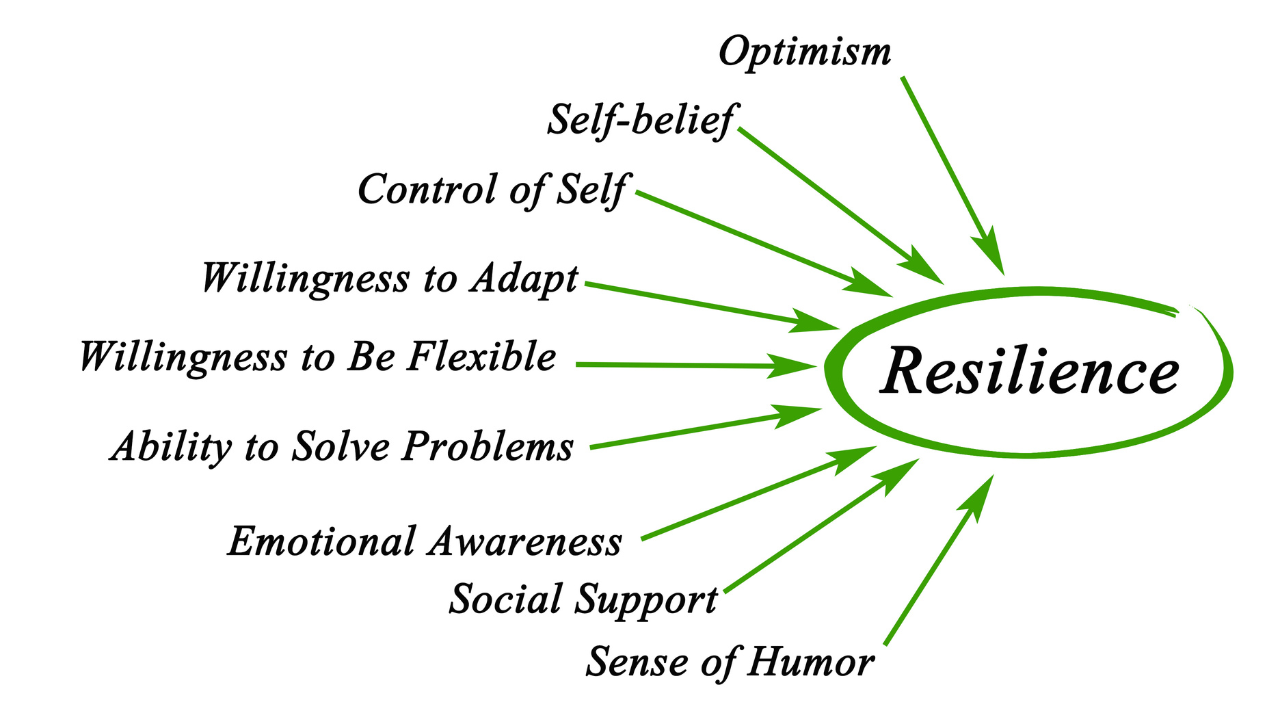
Our brain prefers the “familiar known” of the past because, again not caring about happiness, it knows we’ve “survived it.” The unknown future, even if we intellectually prefer or want it, represents a change in the neurobiological status quo and alarms the mechanisms in our nervous system that attempt to maintain homeostasis. You know this pattern colloquially as “self-sabotaging”—we continually revert back to thinking, feeling, acting, perceiving, and experiencing in the same old ways.
Understanding why things have come to be this way may be completely unnecessary, and often the search for understanding (typical therapy and gossip) is a fool’s errand that doesn’t produce the results we’re hoping for.
Typically, I’ve found that “talking about it”, “figuring it out” and searching for the “cause” of our suffering usually keeps us stuck: frustrated (fight) or frozen (hopeless), because it doesn’t work. It can however be very helpful to understand the mechanisms of our nervous system so that we can effectively work with and not against our nature.
I am not saying that psychotherapy is a waste of time, but it can be. If all your therapist knows how to do is listen, and all you do is “vent” I would contend that that would be barely beneficial and potentially even counterproductive. We need to turn off the alarm system, which stops the bleeding. Then we need to activate the thriving mode, which creates healthy neurochemistry. With the bleeding stopped the cut can scab over and start to heal. By activating healthy neurochemistry we can accelerate that healing.
It is only when the thriving mode is active that we can re-habituate our nervous system and outgrow the problems altogether. It is a very good thing to have coping skills. But it is another order of being when we so completely outgrow the problem that we no longer need to cope with it. That is achieved through a multi-pronged approach of thinking, feeling, and acting in new ways in order to “prune” the neural networks related to habitually enacting surviving mode and to “sprout” new neural networks that foster thriving mode.
When in thriving mode we have three ways of responding to present-moment stimuli, all based on an underlying, subconscious, FELT, neurobiological sense of safety, which enables us to socially engage and be present.
-
At Rest - enjoying, say, the simple pleasure of a sunset
-
Mobilized - play, competition, achievement (enabled by the same parts of our nervous system that have us fight and/or run away when in survival mode).
-
Immobilized - intimacy and the willingness to be still and vulnerable in the presence of others (the counterpart to “freeze”, but with the requirement of feeling safe).
When thriving mode is on, no matter what we do, we make good investments with our energy. By that I mean, what we put out, we get more back. We get good returns even if we spend a lot of energy. Take for example: a fun, engaging competition that requires intense energy output, but it makes us stronger, faster, healthier, and happier.
Surviving mode produces wear and tear while thriving mode restores and rejuvenates.
The human nervous system is so sensitive that even reading all this might be tripping your alarm! So, I invite you to practice a really quick, easy tool that is backed by lots of evidence, it’s called the “physiological sigh," and here is a 3-minute video on YouTube for you to check it out.
Again, there is no neutral. In thriving mode healing happens automatically and we have access to all the nervous system’s resources for everything human beings truly desire: connection, joy, creativity, health, achievement, spirituality, wisdom, and love.
So, “doing the work” is a profoundly worthwhile investment of your time and energy!
I’ve learned, over a few decades of rewiring my own nervous system and thousands of hours helping others do the same that most people think they need to heal in order to thrive, but really we need to thrive in order to heal!
It simply works better to create solutions than it does to fix problems, because, as you will hear me say often, what we focus on GROWS, for better and for worse.
(Now, if you read all that, you might just be the type of person who's ready to do something about upgrading your life from surviving to thriving - join us as we play: The Greatest Game of ALL. )
Featured
Premium Articles

